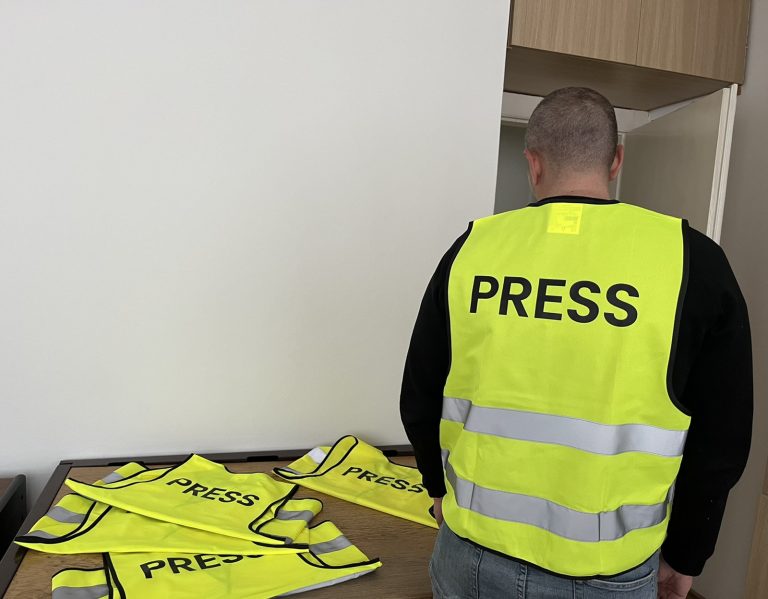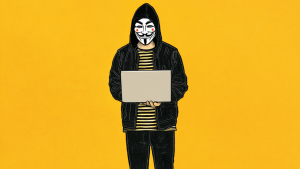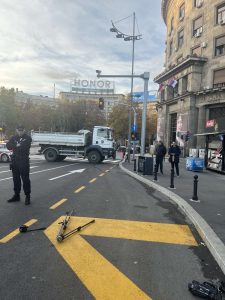Media freedom in Serbia is under serious threat in 2025. According to international organizations, more than 30 journalists were physically attacked in just two months—July and August—while 2024 saw a total of 166 incidents targeting journalists and newsrooms. In addition, Serbia has also plummeted to 96th out of 180 countries on Reporters Without Borders’ press freedom index, one of the lowest rankings in Europe.
Beyond physical and verbal assaults, independent and professional media face a wave of strategic lawsuits known as SLAPPs. The media regulator, (Regulatory Authority for Electronic Media – REM), is heavily influenced by political forces, and systemic discrimination in the allocation of state funds overwhelmingly favors pro-government outlets.
Lucic-Miller conversation: Documented attempts to influence N1
Public concern spiked after the Organized Crime and Corruption Reporting Project (OCCRP) released a recording of a conversation between Telekom Srbija CEO Vladimir Lucic, and CEO of United Group, Stan Miller. In the audio, Lucic openly discusses methods of exerting political influence over N1’s editorial policies.
This recording is the first documented evidence that attempts to control independent media are not mere speculation but a stark reality. For N1’s newsroom and other independent voices in Serbia, it’s a chilling reminder of how vulnerable their position is and the broader dangers facing journalism in the country.
SLAPP suits and a politically influenced regulator
Serbia remains a European hotspot for the abuse of strategic lawsuits against journalists. Unlike the European Union (EU), which adopted last year an Anti-SLAPP Directive, Serbia’s legal framework offers no such safeguards.
At the same time, Concurrently, the political dependence of the REM is evident. The body has frequently been criticized by the public for this, as well as for controversial decisions regarding the allocation of national broadcasting licenses. The European Commission’s Progress Report on Serbia flagged REM’s lack of independence as a key issue.
Attacks and surveillance
In addition to institutional barriers, journalists are increasingly subjected to physical attacks, threats, and digital surveillance. Reporters Without Borders (RSF) has documented a “record wave of violence” and urge the EU to take stronger action. Amnesty International has also raised alarms about the use of spyware against journalists and activists, directly threatening source protection.
Over the past two years, Serbia has entered a period where pressures on the media have become institutionalized: from court cases and regulatory decisions to financial discrimination and documented attempts to influence N1’s editorial policy.
For independent newsrooms, this means a daily struggle not only to uphold professional standards and the dignity of their profession but also to secure their fundamental right to work freely. The record number of attacks, coupled with discussions about bringing independent media under political control, underscores just how endangered press freedom is in Serbia today.
Source: N1




